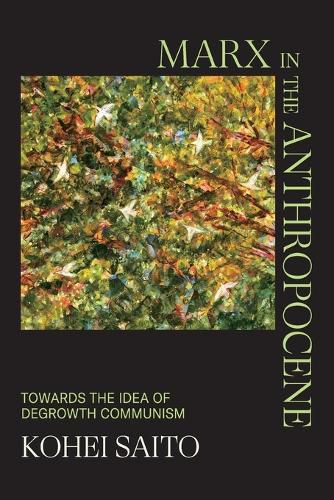Readings Newsletter
Become a Readings Member to make your shopping experience even easier.
Sign in or sign up for free!
You’re not far away from qualifying for FREE standard shipping within Australia
You’ve qualified for FREE standard shipping within Australia
The cart is loading…






Facing global climate crisis, Karl Marx's ecological critique of capitalism more clearly demonstrates its importance than ever. This book explains why Marx's ecology had to be marginalized and even suppressed by Marxists after his death throughout the twentieth century. Marx's ecological critique of capitalism, however, revives in the Anthropocene against dominant productivism and monism. Investigating new materials published in the complete works of Marx and Engels (Marx-Engels-Gesamtausgabe), Saito offers a wholly novel idea of Marx's alternative to capitalism that should be adequately characterized as degrowth communism. This provocative interpretation of the late Marx sheds new lights on the recent debates on the relationship between society and nature and invites readers to envision a post-capitalist society without repeating the failure of the actually existing socialism of the twentieth century.
$9.00 standard shipping within Australia
FREE standard shipping within Australia for orders over $100.00
Express & International shipping calculated at checkout
Stock availability can be subject to change without notice. We recommend calling the shop or contacting our online team to check availability of low stock items. Please see our Shopping Online page for more details.
Facing global climate crisis, Karl Marx's ecological critique of capitalism more clearly demonstrates its importance than ever. This book explains why Marx's ecology had to be marginalized and even suppressed by Marxists after his death throughout the twentieth century. Marx's ecological critique of capitalism, however, revives in the Anthropocene against dominant productivism and monism. Investigating new materials published in the complete works of Marx and Engels (Marx-Engels-Gesamtausgabe), Saito offers a wholly novel idea of Marx's alternative to capitalism that should be adequately characterized as degrowth communism. This provocative interpretation of the late Marx sheds new lights on the recent debates on the relationship between society and nature and invites readers to envision a post-capitalist society without repeating the failure of the actually existing socialism of the twentieth century.